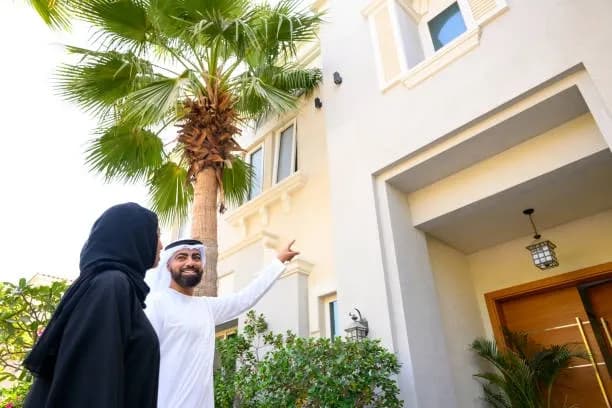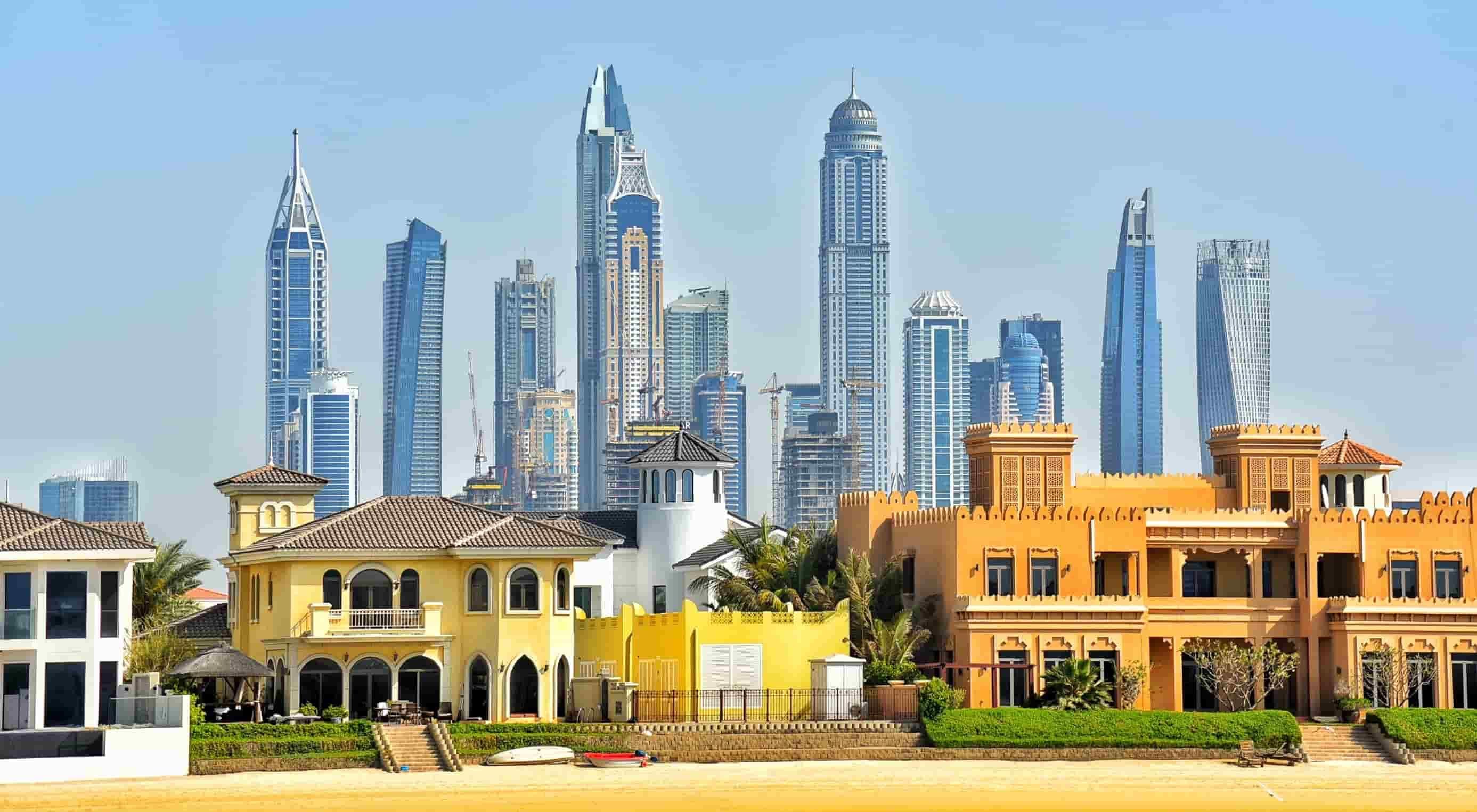Real estate investing has long been a proven method for building wealth, offering stability and tangible returns. Whether you’re looking to generate passive income, diversify your portfolio, or capitalize on property appreciation, real estate can be a powerful financial tool. This guide provides a practical introduction to investing in property for beginners, with simple steps to get started, risks to consider, and tips for entering the dynamic property investment UAE landscape, especially in places like Dubai.
Investing in Property for Beginners
For new investors, real estate can seem overwhelming at first glance. Understanding the basics of investing in property for beginners means learning the types of properties, funding options, and market conditions that affect your returns. In cities like Dubai, knowledge of real estate legal advice, financing, and regulations is also crucial. When you approach real estate investing with the right tools and mindset, you can confidently navigate your first property deal.
7 Simple Ways to Invest in Real Estate
There’s no one-size-fits-all approach to real estate investing. Whether you prefer hands-on property management or passive income streams, there are multiple ways to enter the market based on your goals, budget, and risk tolerance. For those exploring investing in property for beginners, starting with the right strategy is essential. Below are seven straightforward methods to help you step confidently into the world of real estate, each offering its own opportunities and challenges.
1. Buy a Rental Property
One of the most traditional ways of real estate investing for beginners is to purchase a residential property and rent it out. This approach generates consistent monthly income and long-term capital gains. The key is selecting a property in a desirable location with strong rental demand, such as areas influenced by Dubai property market trends.
2. Join a Real Estate Investment Group (REIG)
For those who want a hands-off experience, REIGs pool money from multiple investors to buy properties. Each investor earns a share of the rental income. This method is ideal for those seeking indirect exposure to real estate without the burden of property management.
3. Invest in Real Estate Investment Trusts (REITs)
REITs are companies that own and operate income-generating real estate. They offer a way to invest in real estate without owning physical property. REITs can be publicly traded or private, and they provide diversification and liquidity, making them suitable for digital real estate investing for beginners.
4. Try Real Estate Crowdfunding Platforms
This newer model allows individuals to pool funds online and invest in large commercial or residential projects. It’s a popular method of commercial real estate investing for beginners because it requires low capital. However, it comes with higher risks and less control over investments.
5. Purchase Vacation Rental Properties
Short-term rentals, especially in tourist-friendly cities like Dubai, can offer high returns. Platforms like Airbnb have made managing vacation rentals easier. This method of investing in property for beginners requires active management but can generate significant income during peak seasons.
6. House Flipping
Flipping involves buying undervalued properties, renovating them, and selling for a profit. While potentially lucrative, this method is time-intensive and requires a good understanding of renovation costs and local housing markets. Ideal for more active investors with construction or design knowledge.
7. Invest in Commercial Real Estate
Investing in office buildings, retail spaces, or warehouses offers high-income potential. This form of commercial real estate investing for beginners typically requires more capital but yields long-term leases and professional tenants, resulting in stable returns.
Also read: Commercial Real Estate Development Process
Advantages and Disadvantages of Property Investment
Understanding the pros and cons of investing in property for beginners helps align your goals with your risk tolerance and investment strategy.
Advantages
- Stable Cash Flow: Rental properties offer predictable monthly income.
- Appreciation: Property values tend to increase over time.
- Tax Benefits: Investors can deduct property taxes, mortgage interest, and depreciation.
- Hedge Against Inflation: Real estate typically appreciates during inflationary periods.
- Leverage: Using mortgages allows investors to control more assets with less capital.
Disadvantages
- High Entry Costs: Buying property requires a significant initial investment.
- Management Burden: Tenants, maintenance, and vacancies require time and effort.
- Illiquidity: Selling a property can take time compared to stocks or bonds.
- Market Volatility: Real estate markets fluctuate based on economic cycles and policy changes.
- Legal Complexity: You may need real estate legal advice to avoid legal issues.
Why Should I Add Real Estate to My Portfolio?
Diversifying your investment portfolio with real estate reduces overall risk. Unlike stocks or crypto, real estate offers tangible value and stability, particularly during economic downturns. Including real estate enhances your financial resilience and opens up opportunities for both passive income and capital gains.
Also read: Future Developments in Dubai
Direct vs. Indirect Real Estate Investing Explained
When it comes to investing in property for beginners, one of the first decisions is whether to invest directly or indirectly. Direct real estate investing means purchasing and managing physical properties yourself, such as rental units, vacation homes, or fix-and-flip projects. This approach offers full control but also comes with greater responsibilities, including maintenance, tenant management, and upfront capital.
On the other hand, indirect investing provides exposure to real estate through channels like REITs, real estate crowdfunding platforms, or investment groups (REIGs). These options are ideal for those who prefer a passive approach with lower entry costs and minimal involvement. Many first-time investors choose the indirect route as it allows them to participate in the market without the complexities of ownership and property management.
What Is the Typical Minimum Investment in Real Estate?
The minimum varies by region and method. For direct purchases in Dubai, you may need at least AED 300,000, especially when considering property financing solutions. REITs and crowdfunding platforms, however, allow entry with as little as AED 500 to AED 5,000, making them perfect for digital real estate investing for beginners.
Is Real Estate Crowdfunding Risky?
Yes, like any investment, crowdfunding carries risks. These platforms often invest in high-risk or developing markets. Returns are not guaranteed, and projects may face delays or losses. For investing in property for beginners, it’s essential to thoroughly research each platform and its track record.
Also read: Average Price of a House in Dubai
What Are Favorable Conditions for Investing in Real Estate?
Timing can significantly impact the success of your real estate investment. Favorable conditions often include low interest rates, which make borrowing more affordable, and a rising demand for rental properties, which increases the potential for steady income. Government incentives, such as tax breaks or relaxed foreign ownership laws, can also make entry into the market more attractive, especially for international investors. In regions like Dubai, positive property market trends and a stable political and economic environment further enhance investor confidence. For those exploring real estate investing for beginners, recognizing these signals can help identify the right moment to enter the market.
Understanding Property Investment Basics
Before diving into the market, it’s essential to grasp the core principles of property investment. For those new to the field, building a strong foundation helps reduce risk and supports smarter decision-making throughout your real estate journey.
Research the Market
Understand the supply, demand, rental yields, and growth potential in your target area. In the real estate in Dubai market, focus on infrastructure developments and government policy shifts.
Define Your Strategy
Are you seeking short-term profit or long-term gains? Choosing the right method aligns your goals with investment outcomes.
Budget for All Costs
Factor in taxes, insurance, maintenance, and mortgage payments. These affect your net returns and cash flow.
Choose the Right Property
Location, type, and tenant profile all influence profitability. Use real estate services Dubai experts to help guide your search.
Also read: How to Buy Property in Dubai Without Down Payment
Common Mistakes to Avoid in Property Investment
Even promising investments can falter due to avoidable errors. Understanding the most common pitfalls helps beginners make smarter choices and protect their capital from unnecessary risks.
Overleveraging
Taking on too much debt can lead to financial strain if the market shifts or tenants default.
Ignoring Due Diligence
Failing to research property history, market trends, or legal obligations leads to poor investment decisions.
Underestimating Maintenance Costs
Unanticipated expenses can quickly eat into profits. Set aside reserves for repairs and vacancies.
Not Getting Professional Advice
Especially in international markets, lack of real estate legal advice can lead to compliance issues and lost investments.
Chasing Quick Profits
Real estate rewards patience. Avoid schemes promising overnight returns, especially in digital real estate investing for beginners.
Costs of Investing in Property
After knowing all of this information, of course you will be asking, what is the costs of investing in property?
Costs include:
- Down payment (usually 20%–30%)
- Property taxes and registration
- Legal fees and agent commissions
- Maintenance and repairs
- Loan interest and insurance
Always analyze these costs before buying an investment property, as they significantly impact ROI.
Also read: secondary market real estate dubai
What to Consider When Buying an Investment Property
Purchasing an investment property requires careful evaluation of several key factors to ensure long-term profitability and sustainability. First and foremost, location plays a critical role, areas with high demand, strong infrastructure, and potential for capital growth are more likely to deliver steady returns. Understanding tenant profiles and estimating rental income potential can help you align your investment with market needs.
Additionally, it’s essential to research local property laws, tax obligations, and any legal nuances, especially if you’re investing across borders. If you’re exploring opportunities in the real estate in Dubai market, consider its regulatory environment and ownership rules. Accessibility to property financing solutions is also crucial, as favorable lending terms can directly impact your cash flow and return on investment. Finally, assess overall market stability; thriving sectors like property investment in the UAE are often supported by consistent demand and government-backed development initiatives.
Types of Real Estate Investments
Real estate offers a diverse range of investment options, each with its own level of risk, return, and involvement. From residential rentals to commercial properties and emerging digital assets, understanding these types helps beginners choose the strategy that best fits their goals and resources.
1. Residential Properties
Ideal for investing in property for beginners. Includes apartments, villas, and townhouses.
2. Commercial Real Estate
Offices, retail shops, and warehouses, best suited for commercial real estate investing for beginners.
3. Digital Real Estate
Buying websites or virtual property, a fast-growing trend in digital real estate investing for beginners.
4. REITs and Funds
Pooled investment vehicles offering diversified exposure with minimal effort.
Also read: How to Sell Your Property in Dubai
Start Your Dubai Property Journey with Roofs & Roots
Dubai offers one of the most dynamic real estate markets in the world. Whether you’re a resident or a foreign investor, starting your journey with expert support is key. Contact Roofs & Roots for tailored real estate services Dubai, including assistance with property financing solutions, legal support, and property selection in line with current Dubai property market trends. Investing with professionals ensures you make informed, profitable decisions in the property investment UAE market.
FAQs
What type of property is best for first investment?
A small residential property like a studio apartment or one-bedroom flat is often ideal. These units offer high rental demand and lower entry costs, making them perfect for investing in property for beginners.
How to invest $500 AED in UAE?
You can start with digital real estate investing for beginners using crowdfunding platforms or explore REITs listed on regional exchanges. These offer a low-cost entry point into the market.
How to start with an investment property?
Research the market, set a budget, get pre-approved for financing, and choose a location with growth potential. Partner with real estate services Dubai experts to streamline your process.
What is the 2% rule?
This rule suggests that monthly rent should be at least 2% of the purchase price to ensure cash flow. It helps evaluate if a property is a good investment.
What is the 3% rule?
The 3% rule refers to the annual maintenance costs of a property. Budgeting 3% of the property’s value per year helps account for upkeep and repairs.
What is the 5 second rule method?
In real estate, the “5 second rule” is an investor’s quick-glance check: if a property doesn’t meet basic criteria within five seconds, move on. It helps filter unsuitable listings quickly during research.






